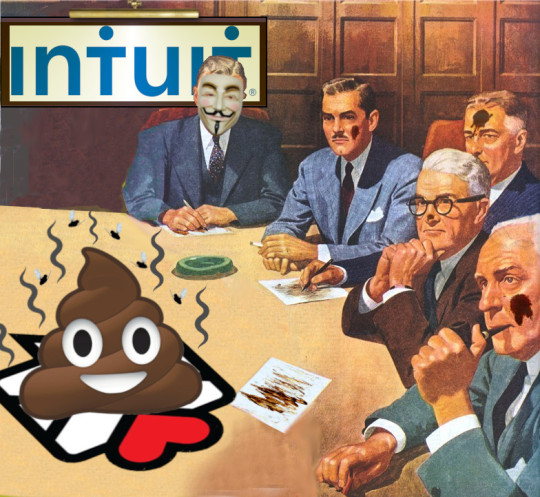#01/13/2022
Text
To dream perchance to sleep
I lay awake at night often, there is not much that I do not contemplate at 3 in the morning, including death itself. It is not so surreal a contemplation, a haunt that has long held its whispery shadows over humanity, we write plays about it, allude to it in songs, personify and villifiy– soften and sedate. We often do not name it directly, old superstitions about saying a name, giving power to a name, only in such furthering its fairytale narrative. But late at night when I am wondering whether I wish to exist, if any of it is worth the pain in today and tomorrow, it is not a long robbed scythe bearing figure that I think of, death comes to me not in relief or anxiety, it arises in actions and possibility.
For how can you feel release when you are dead, you cannot feel anything at all, what determines an action felt when there is no one around to feel it. You simply cease to feel anything is that release? True zero does not actually exist, scientists think perhaps before the big bang, the clashing of the universe into existence that it was a possibility then, but in our existence it is a placeholder number, there is never nothing. This is perhaps only a ramble, longer than the meandering road that one takes before realising they are quite lost. Just like the lack of nothingness, there is a lack of answers and in fact no way to actually know what is beyond the so called end.
I do not actually want to die, I think that is often the case, or at least according to the statistics. Would it be nice if it was easier to talk about?: without everyone abounding in worry and concern, the contemplation cannot actually be explained in so called accepted logic, which is why people fear it. Yet we still cannot escape it, to have had people in our life who have killed themselves and or have been adjacently connected to many more, is this the case for everyone, with the former that is, I am sure through enough of tangled root system anyone could find a connection to someone, who knew someone, who knew someone, et cetera… I suppose the vulnerable would naturally be around the other vulnerable. I think that also goes with the case of mental health in general, it is hard to actually believe there are people that could be classified as “mentally well”, its hard to believe not everyone is fucked up in the head, often I do not believe it, thinking its perhaps another mythos of society, to all get us to “keep moving forward”. Like, don’t worry everyone has a screaming demon in their head that just scream, scream, screams, all day long, and never shuts the fuck up not even when you want to sleep.
Would we even want to talk about it, if it were normalised, I know I rarely want to talk about my feelings as it is, they are hard for me to handle, much less for anyone else to handle. Is that wherein the problem lies, we all want to fix everything, someone states a problem and we often go straight to a solution. I guess the repercussions of not openly talking about it is the bad poetry and song lyrics in my journal, which is certainly something I pity anyone finding 50 years in the future, although I would only be 77 then, so best make it a round 100 in hopes that I am not around for the emotionally flaying of someone reading my work.
I could do that here, go on poetically about the way my body always has a hive of bees buzzing numbly beneath my skin, that too much silence is far too loud and too much noise makes me wish my head would fall lop off my shoulders. That my chest feels concave on any good day and on a worse day its like there is cold metal being poured into my mouth and the silvery threads are slinking across my bloodstream. Yet nothing I say or write hushes the humming, it is always there, which leads us back to our point. Does it end when you end it, if you can not feel the end at all?
I am afraid my writing here sounds incredibly naive or worse pretentious, a child poking at big essays and ideas. It's hard not to be effusively demonstrative in order to illustrate one's point. Even still after criticizing talking around the point, that is what I spend 700 words doing, so here it is, for while I do not wish to die, I certainly have thought about killing myself.
0 notes
Text
Aún no comprendo si mis sentimientos son mi culpa.
¿Tengo que arrepentirme de ello?
¿Autocompadecerme?
Tengo que cambiarlos, creo,
pero no puedo
no sé cómo.
Y aunque yo no cause mis sentimientos,
¿también son mi culpa?
Últimamente me siento culpable,
es una culpa pesada e incomprensible,
que no sé cuándo llego y dudo que tenga fecha de caducidad o ida.
Luux
#luux#versos#13/01/2022#notas#citas#frases#letras#textos#soledad#sentimientos#emociones#emocional#inspiración#sola#desastre#destruida#solo#lagrimas#es mi culpa
104 notes
·
View notes
Text

2 notes
·
View notes
Photo

7 notes
·
View notes
Text
Becky G – ESQUEMAS (Album) (2022)
Becky G – ESQUEMAS (Album) (2022)
Tracklist:
01 –Becky G – Buen Dia
02 –Becky G, El Alfa – Fulanito
03 –Becky G, Guaynaa – Tajin
04 –Becky G, ELENA ROSE – Flashback
05 –Becky G – Bailé Con Mi Ex
06 –Becky G – Dolores
07 –Becky G – Una Mas
08 –Becky G – Borracha
09 –Becky G – Kill Bill
10 –Becky G – Que Le Muerda
11 –Becky G – Guapa
12 –Natti Natasha, Becky G – Ram Pam Pam
13 –Becky G – No Mienten
14 –Becky G, KAROL G –…

View On WordPress
#01 –Becky G – Buen Dia#02 –Becky G#03 –Becky G#04 –Becky G#05 –Becky G – Bailé Con Mi Ex#06 –Becky G – Dolores#07 –Becky G – Una Mas#08 –Becky G – Borracha#09 –Becky G – Kill Bill#10 –Becky G – Que Le Muerda#11 –Becky G – Guapa#12 –Natti Natasha#13 –Becky G – No Mienten#14 –Becky G#Becky G – ESQUEMAS (Album) (2022)#Becky G – Ram Pam Pam#El Alfa – Fulanito#ELENA ROSE – Flashback#Guaynaa – Tajin#KAROL G – Mamiii
5 notes
·
View notes
Text
Crece en invierno.
(2022-12-26)
(2022-12-26)
(2022-12-26)
(2023-01-13)
(2023-01-13)
(2023-01-13)
(2023-01-13)
(2023-01-27)

View On WordPress
0 notes
Text
Your car spies on you and rats you out to insurance companies

I'm on tour with my new, nationally bestselling novel The Bezzle! Catch me TOMORROW (Mar 13) in SAN FRANCISCO with ROBIN SLOAN, then Toronto, NYC, Anaheim, and more!

Another characteristically brilliant Kashmir Hill story for The New York Times reveals another characteristically terrible fact about modern life: your car secretly records fine-grained telemetry about your driving and sells it to data-brokers, who sell it to insurers, who use it as a pretext to gouge you on premiums:
https://www.nytimes.com/2024/03/11/technology/carmakers-driver-tracking-insurance.html
Almost every car manufacturer does this: Hyundai, Nissan, Ford, Chrysler, etc etc:
https://www.repairerdrivennews.com/2020/09/09/ford-state-farm-ford-metromile-honda-verisk-among-insurer-oem-telematics-connections/
This is true whether you own or lease the car, and it's separate from the "black box" your insurer might have offered to you in exchange for a discount on your premiums. In other words, even if you say no to the insurer's carrot – a surveillance-based discount – they've got a stick in reserve: buying your nonconsensually harvested data on the open market.
I've always hated that saying, "If you're not paying for the product, you're the product," the reason being that it posits decent treatment as a customer reward program, like the little ramekin warm nuts first class passengers get before takeoff. Companies don't treat you well when you pay them. Companies treat you well when they fear the consequences of treating you badly.
Take Apple. The company offers Ios users a one-tap opt-out from commercial surveillance, and more than 96% of users opted out. Presumably, the other 4% were either confused or on Facebook's payroll. Apple – and its army of cultists – insist that this proves that our world's woes can be traced to cheapskate "consumers" who expected to get something for nothing by using advertising-supported products.
But here's the kicker: right after Apple blocked all its rivals from spying on its customers, it began secretly spying on those customers! Apple has a rival surveillance ad network, and even if you opt out of commercial surveillance on your Iphone, Apple still secretly spies on you and uses the data to target you for ads:
https://pluralistic.net/2022/11/14/luxury-surveillance/#liar-liar
Even if you're paying for the product, you're still the product – provided the company can get away with treating you as the product. Apple can absolutely get away with treating you as the product, because it lacks the historical constraints that prevented Apple – and other companies – from treating you as the product.
As I described in my McLuhan lecture on enshittification, tech firms can be constrained by four forces:
I. Competition
II. Regulation
III. Self-help
IV. Labor
https://pluralistic.net/2024/01/30/go-nuts-meine-kerle/#ich-bin-ein-bratapfel
When companies have real competitors – when a sector is composed of dozens or hundreds of roughly evenly matched firms – they have to worry that a maltreated customer might move to a rival. 40 years of antitrust neglect means that corporations were able to buy their way to dominance with predatory mergers and pricing, producing today's inbred, Habsburg capitalism. Apple and Google are a mobile duopoly, Google is a search monopoly, etc. It's not just tech! Every sector looks like this:
https://www.openmarketsinstitute.org/learn/monopoly-by-the-numbers
Eliminating competition doesn't just deprive customers of alternatives, it also empowers corporations. Liberated from "wasteful competition," companies in concentrated industries can extract massive profits. Think of how both Apple and Google have "competitively" arrived at the same 30% app tax on app sales and transactions, a rate that's more than 1,000% higher than the transaction fees extracted by the (bloated, price-gouging) credit-card sector:
https://pluralistic.net/2023/06/07/curatorial-vig/#app-tax
But cartels' power goes beyond the size of their warchest. The real source of a cartel's power is the ease with which a small number of companies can arrive at – and stick to – a common lobbying position. That's where "regulatory capture" comes in: the mobile duopoly has an easier time of capturing its regulators because two companies have an easy time agreeing on how to spend their app-tax billions:
https://pluralistic.net/2022/06/05/regulatory-capture/
Apple – and Google, and Facebook, and your car company – can violate your privacy because they aren't constrained regulation, just as Uber can violate its drivers' labor rights and Amazon can violate your consumer rights. The tech cartels have captured their regulators and convinced them that the law doesn't apply if it's being broken via an app:
https://pluralistic.net/2023/04/18/cursed-are-the-sausagemakers/#how-the-parties-get-to-yes
In other words, Apple can spy on you because it's allowed to spy on you. America's last consumer privacy law was passed in 1988, and it bans video-store clerks from leaking your VHS rental history. Congress has taken no action on consumer privacy since the Reagan years:
https://www.eff.org/tags/video-privacy-protection-act
But tech has some special enshittification-resistant characteristics. The most important of these is interoperability: the fact that computers are universal digital machines that can run any program. HP can design a printer that rejects third-party ink and charge $10,000/gallon for its own colored water, but someone else can write a program that lets you jailbreak your printer so that it accepts any ink cartridge:
https://www.eff.org/deeplinks/2020/11/ink-stained-wretches-battle-soul-digital-freedom-taking-place-inside-your-printer
Tech companies that contemplated enshittifying their products always had to watch over their shoulders for a rival that might offer a disenshittification tool and use that as a wedge between the company and its customers. If you make your website's ads 20% more obnoxious in anticipation of a 2% increase in gross margins, you have to consider the possibility that 40% of your users will google "how do I block ads?" Because the revenue from a user who blocks ads doesn't stay at 100% of the current levels – it drops to zero, forever (no user ever googles "how do I stop blocking ads?").
The majority of web users are running an ad-blocker:
https://doc.searls.com/2023/11/11/how-is-the-worlds-biggest-boycott-doing/
Web operators made them an offer ("free website in exchange for unlimited surveillance and unfettered intrusions") and they made a counteroffer ("how about 'nah'?"):
https://www.eff.org/deeplinks/2019/07/adblocking-how-about-nah
Here's the thing: reverse-engineering an app – or any other IP-encumbered technology – is a legal minefield. Just decompiling an app exposes you to felony prosecution: a five year sentence and a $500k fine for violating Section 1201 of the DMCA. But it's not just the DMCA – modern products are surrounded with high-tech tripwires that allow companies to invoke IP law to prevent competitors from augmenting, recongifuring or adapting their products. When a business says it has "IP," it means that it has arranged its legal affairs to allow it to invoke the power of the state to control its customers, critics and competitors:
https://locusmag.com/2020/09/cory-doctorow-ip/
An "app" is just a web-page skinned in enough IP to make it a crime to add an ad-blocker to it. This is what Jay Freeman calls "felony contempt of business model" and it's everywhere. When companies don't have to worry about users deploying self-help measures to disenshittify their products, they are freed from the constraint that prevents them indulging the impulse to shift value from their customers to themselves.
Apple owes its existence to interoperability – its ability to clone Microsoft Office's file formats for Pages, Numbers and Keynote, which saved the company in the early 2000s – and ever since, it has devoted its existence to making sure no one ever does to Apple what Apple did to Microsoft:
https://www.eff.org/deeplinks/2019/06/adversarial-interoperability-reviving-elegant-weapon-more-civilized-age-slay
Regulatory capture cuts both ways: it's not just about powerful corporations being free to flout the law, it's also about their ability to enlist the law to punish competitors that might constrain their plans for exploiting their workers, customers, suppliers or other stakeholders.
The final historical constraint on tech companies was their own workers. Tech has very low union-density, but that's in part because individual tech workers enjoyed so much bargaining power due to their scarcity. This is why their bosses pampered them with whimsical campuses filled with gourmet cafeterias, fancy gyms and free massages: it allowed tech companies to convince tech workers to work like government mules by flattering them that they were partners on a mission to bring the world to its digital future:
https://pluralistic.net/2023/09/10/the-proletarianization-of-tech-workers/
For tech bosses, this gambit worked well, but failed badly. On the one hand, they were able to get otherwise powerful workers to consent to being "extremely hardcore" by invoking Fobazi Ettarh's spirit of "vocational awe":
https://www.inthelibrarywiththeleadpipe.org/2018/vocational-awe/
On the other hand, when you motivate your workers by appealing to their sense of mission, the downside is that they feel a sense of mission. That means that when you demand that a tech worker enshittifies something they missed their mother's funeral to deliver, they will experience a profound sense of moral injury and refuse, and that worker's bargaining power means that they can make it stick.
Or at least, it did. In this era of mass tech layoffs, when Google can fire 12,000 workers after a $80b stock buyback that would have paid their wages for the next 27 years, tech workers are learning that the answer to "I won't do this and you can't make me" is "don't let the door hit you in the ass on the way out" (AKA "sharpen your blades boys"):
https://techcrunch.com/2022/09/29/elon-musk-texts-discovery-twitter/
With competition, regulation, self-help and labor cleared away, tech firms – and firms that have wrapped their products around the pluripotently malleable core of digital tech, including automotive makers – are no longer constrained from enshittifying their products.
And that's why your car manufacturer has chosen to spy on you and sell your private information to data-brokers and anyone else who wants it. Not because you didn't pay for the product, so you're the product. It's because they can get away with it.
Cars are enshittified. The dozens of chips that auto makers have shoveled into their car design are only incidentally related to delivering a better product. The primary use for those chips is autoenshittification – access to legal strictures ("IP") that allows them to block modifications and repairs that would interfere with the unfettered abuse of their own customers:
https://pluralistic.net/2023/07/24/rent-to-pwn/#kitt-is-a-demon
The fact that it's a felony to reverse-engineer and modify a car's software opens the floodgates to all kinds of shitty scams. Remember when Bay Staters were voting on a ballot measure to impose right-to-repair obligations on automakers in Massachusetts? The only reason they needed to have the law intervene to make right-to-repair viable is that Big Car has figured out that if it encrypts its diagnostic messages, it can felonize third-party diagnosis of a car, because decrypting the messages violates the DMCA:
https://www.eff.org/deeplinks/2013/11/drm-cars-will-drive-consumers-crazy
Big Car figured out that VIN locking – DRM for engine components and subassemblies – can felonize the production and the installation of third-party spare parts:
https://pluralistic.net/2022/05/08/about-those-kill-switched-ukrainian-tractors/
The fact that you can't legally modify your car means that automakers can go back to their pre-2008 ways, when they transformed themselves into unregulated banks that incidentally manufactured the cars they sold subprime loans for. Subprime auto loans – over $1t worth! – absolutely relies on the fact that borrowers' cars can be remotely controlled by lenders. Miss a payment and your car's stereo turns itself on and blares threatening messages at top volume, which you can't turn off. Break the lease agreement that says you won't drive your car over the county line and it will immobilize itself. Try to change any of this software and you'll commit a felony under Section 1201 of the DMCA:
https://pluralistic.net/2021/04/02/innovation-unlocks-markets/#digital-arm-breakers
Tesla, naturally, has the most advanced anti-features. Long before BMW tried to rent you your seat-heater and Mercedes tried to sell you a monthly subscription to your accelerator pedal, Teslas were demon-haunted nightmare cars. Miss a Tesla payment and the car will immobilize itself and lock you out until the repo man arrives, then it will blare its horn and back itself out of its parking spot. If you "buy" the right to fully charge your car's battery or use the features it came with, you don't own them – they're repossessed when your car changes hands, meaning you get less money on the used market because your car's next owner has to buy these features all over again:
https://pluralistic.net/2023/07/28/edison-not-tesla/#demon-haunted-world
And all this DRM allows your car maker to install spyware that you're not allowed to remove. They really tipped their hand on this when the R2R ballot measure was steaming towards an 80% victory, with wall-to-wall scare ads that revealed that your car collects so much information about you that allowing third parties to access it could lead to your murder (no, really!):
https://pluralistic.net/2020/09/03/rip-david-graeber/#rolling-surveillance-platforms
That's why your car spies on you. Because it can. Because the company that made it lacks constraint, be it market-based, legal, technological or its own workforce's ethics.
One common critique of my enshittification hypothesis is that this is "kind of sensible and normal" because "there’s something off in the consumer mindset that we’ve come to believe that the internet should provide us with amazing products, which bring us joy and happiness and we spend hours of the day on, and should ask nothing back in return":
https://freakonomics.com/podcast/how-to-have-great-conversations/
What this criticism misses is that this isn't the companies bargaining to shift some value from us to them. Enshittification happens when a company can seize all that value, without having to bargain, exploiting law and technology and market power over buyers and sellers to unilaterally alter the way the products and services we rely on work.
A company that doesn't have to fear competitors, regulators, jailbreaking or workers' refusal to enshittify its products doesn't have to bargain, it can take. It's the first lesson they teach you in the Darth Vader MBA: "I am altering the deal. Pray I don't alter it any further":
https://pluralistic.net/2023/10/26/hit-with-a-brick/#graceful-failure
Your car spying on you isn't down to your belief that your carmaker "should provide you with amazing products, which brings your joy and happiness you spend hours of the day on, and should ask nothing back in return." It's not because you didn't pay for the product, so now you're the product. It's because they can get away with it.
The consequences of this spying go much further than mere insurance premium hikes, too. Car telemetry sits at the top of the funnel that the unbelievably sleazy data broker industry uses to collect and sell our data. These are the same companies that sell the fact that you visited an abortion clinic to marketers, bounty hunters, advertisers, or vengeful family members pretending to be one of those:
https://pluralistic.net/2022/05/07/safegraph-spies-and-lies/#theres-no-i-in-uterus
Decades of pro-monopoly policy led to widespread regulatory capture. Corporate cartels use the monopoly profits they extract from us to pay for regulatory inaction, allowing them to extract more profits.
But when it comes to privacy, that period of unchecked corporate power might be coming to an end. The lack of privacy regulation is at the root of so many problems that a pro-privacy movement has an unstoppable constituency working in its favor.
At EFF, we call this "privacy first." Whether you're worried about grifters targeting vulnerable people with conspiracy theories, or teens being targeted with media that harms their mental health, or Americans being spied on by foreign governments, or cops using commercial surveillance data to round up protesters, or your car selling your data to insurance companies, passing that long-overdue privacy legislation would turn off the taps for the data powering all these harms:
https://www.eff.org/wp/privacy-first-better-way-address-online-harms
Traditional economics fails because it thinks about markets without thinking about power. Monopolies lead to more than market power: they produce regulatory capture, power over workers, and state capture, which felonizes competition through IP law. The story that our problems stem from the fact that we just don't spend enough money, or buy the wrong products, only makes sense if you willfully ignore the power that corporations exert over our lives. It's nice to think that you can shop your way out of a monopoly, because that's a lot easier than voting your way out of a monopoly, but no matter how many times you vote with your wallet, the cartels that control the market will always win:
https://pluralistic.net/2024/03/05/the-map-is-not-the-territory/#apor-locksmith

Name your price for 18 of my DRM-free ebooks and support the Electronic Frontier Foundation with the Humble Cory Doctorow Bundle.

If you'd like an essay-formatted version of this post to read or share, here's a link to it on pluralistic.net, my surveillance-free, ad-free, tracker-free blog:
https://pluralistic.net/2024/03/12/market-failure/#car-wars

Image:
Cryteria (modified)
https://commons.wikimedia.org/wiki/File:HAL9000.svg
CC BY 3.0
https://creativecommons.org/licenses/by/3.0/deed.en
#pluralistic#if you're not paying for the product you're the product#if you're paying for the product you're the product#cars#automotive#enshittification#technofeudalism#autoenshittification#antifeatures#felony contempt of business model#twiddling#right to repair#privacywashing#apple#lexisnexis#insuretech#surveillance#commercial surveillance#privacy first#data brokers#subprime#kash hill#kashmir hill
2K notes
·
View notes
Text
335. TĂCEREA SAU ATENȚIE LA GÂNDURI ȘI LA STĂRILE SUFLETEȘTI [Luca 4.9–13 I Ieremia 51.50 I Evrei 4.12]
335. TĂCEREA SAU ATENȚIE LA GÂNDURI ȘI LA STĂRILE SUFLETEȘTI [Luca 4.9–13 I Ieremia 51.50 I Evrei 4.12]
335. TĂCEREA SAU ATENȚIE LA GÂNDURI ȘI LA STĂRILE SUFLETEȘTI
I Podcast I Pasaje Biblice : Luca 4 : 9 – 13 I Ieremia 51 : 50 I Evrei 4 : 12 I Meditaţii din Cuvânt I Cezareea I Reşiţa I 01 Decembrie 2022 I
Un creștin care se sfințește este foarte atent la faptele lui, la cuvintele lui, la gândurile lui și totuși va avea surpriza să constate că, deși el duce o luptă continuă pentru a se menține…

View On WordPress
#01 Decembrie 2022#335. TACEREA SAU ATENTIE LA GANDURI SI LA STARILE SUFLETESTI#Evrei 4.12#Ieremia 51.50#Luca 4.9–13
0 notes
Link
https://t.co/jwfYq5os13 https://t.co/cPFXCu2v8H
— kynd.info (@kyndinfo) Oct 13, 2022
0 notes
Text

2 notes
·
View notes
Text
2048 imm notice
#http://vk.cc/c7jKeU#nofollow#_blank#<p> </p><p> </p><center>2048 IMM NOTICE >> <strong><u><a href= rel= target=>DOWNLOAD LINK<#<br> 2048-imm 2022#<br> formulaire 2048-imm-sd 2021#<br> 2048-imm tab2048-m bofip#<br> 2048-imm remplissable#<br> imprimé plus-value immobilière remplissable#<br> formulaire 2048-m-sd 2022 remplissable#<br>#<br> </p><p> </p><p> </p><p>N° 2048-TAB-NOT-SD. (01-2018). @internet-DGFiP. NOTICE le contribuable est dispensé de dépôt de la dé#Or#il m'a été dit que selon la notice 2048-IMM-NOT-SD#dans le cas de "plus value réalisées lors de la première cession d'un logement autre que laN° 2048-IMM-NOT-SD. (06-2021). @internet-DGFiP.#06. NOTICE pour la rédaction de la déclaration de plus-value sur les cessions d'immeubles ou de droits#Télécharger le formulaire: n° 2048 - IMM-SD (03-2016) - Cerfa n° 12359*13 - Déclaration de plus-value sur les cessions d'immeubles ou de dr#Le formulaire n°2048-IMM-SD contient un tableau permettant d'en établir le montant (en pratique#celui-ci est calculé par le notaire).#et les taux de réduction pour durée de détention pour la détermination de la plus-value imposable. Accès à la notice 2048-IMM-NOT-SD (cerfa#</p><br>#.
0 notes
Video
youtube
https://www.youtube.com/watch?v=R8Fg6RcJRhM July, 13, 2022, at, 01:04AM July 13, 2022 at 01:04AMFound on YouTube: #mindfulnesschallenge #aprendeconlaniakea #filosofando #filosofia #reflexionesparaparvulitos (2) https://www.youtube.com/watch?v=R8Fg6RcJRhM
0 notes
Photo

Älä (don't) #wall #text #helsinki #finland https://instagr.am/p/Cf8yCVWN86F/
0 notes
Text
Floreció y empezó a crecer.
Floreció y empezó a crecer.
(2022-07-05)
(2022-09-02)
(2022-07-05)
(2022-07-06)
(2022-07-06)
(2022-07-03)
(2022-07-04)
(2022-07-05)
(2022-08-01)
(2022-08-13)
(2022-08-13)
(2022-09-02)
(2022-09-02)

View On WordPress
#2022-07-03#2022-07-04#2022-07-05#2022-07-06#2022-08-01#2022-08-13#2022-09-02#cacti#cactus#cactuslover#echinopsis
0 notes
Text
The real problem with anonymity

I'm on tour with my new, nationally bestselling novel The Bezzle! Catch me in TUCSON (Mar 9-10), then San Francisco (Mar 13), Anaheim, and more!

According to "the greater internet fuckwad theory," the ills of the internet can be traced to anonymity:
Normal Person + Anonymity + Audience = Total Fuckwad
https://knowyourmeme.com/memes/greater-internet-fuckwad-theory
This isn't merely wrong, it's dangerously wrong. The idea that forcing people to identify themselves online will improve discourse is demonstrably untrue. Facebook famously adopted its "real names" policy because Mark Zuckerberg claimed to believe that "Having two identities for yourself is an example of a lack of integrity":
https://www.zephoria.org/thoughts/archives/2010/05/14/facebook-and-radical-transparency-a-rant.html
In service to this claimed belief, Zuckerberg kicked off the "nym wars," turning himself into the sole arbiter of what each person's true name was, with predictably tragicomic consequences:
https://www.kalzumeus.com/2010/06/17/falsehoods-programmers-believe-about-names/
Facebook is, famously, one of the internet's most polluted reservoirs of toxic interpersonal conduct. That's not despite the fact that people have to use their "real" names to participate there, but because of it. After all, the people who are most vulnerable to bullying and harassment are the ones who choose pseudonyms or anonymity so that they can speak freely. Forcing people to use their "real names" means that the most powerful bullies speak with impunity, and their victims are faced with the choice of retreat or being targeted offline.
This can be a matter of life and death. Cambodian dictator Hun Sen uses Facebook's real names policy to force dissidents to unmask themselves, which exposes them to arbitrary detention, torture, and extrajudicial killing. For members of the Cambodian diaspora, the choice is to unmask themselves or expose their family back home to retaliation:
https://www.buzzfeednews.com/article/meghara/facebook-cambodia-democracy
Some of the biggest internet fuckwads I've ever met – and I've met some big ones! – were utterly unashamed about using their real names. Some of the nicest people I know online have never told me their offline names. Greater internet fuckwad theory is just plain wrong.
But that doesn't mean that anonymity is totally harmless. There is a category of person who reliably uses a certain, specific kind of anonymity to do vicious things that inflicts serious harm on whole swathes of people: corporate bullies.
Take Tinyletter. Tinyletter is a beloved newsletter app that was created to help people who just wanted to talk to others, without a thought to going viral or getting rich. It was sold to Mailchimp, which was sold to Intuit, who killed it:
https://www.theverge.com/24085737/tinyletter-mailchimp-shut-down-email-newsletters
Tinyletter was a perfect little gem of a service. It cost almost nothing to run, and made an enormous number of peoples' lives better every day. Shutting it down was an act of corporate depravity by some faceless Intuit manager who woke up one day and said "Fuck all those people. Just fuck them."
No one knows who that person was. That person will never have to look those people in the eyes – those people whose lives were made poorer for that Intuit executive's indifference. That person is the greater fuckwad, and that fuckwaddery depends on their anonymity.
Or take @Pixsy, a corporate shakedown outfit that helps copyleft trolls trick people into making tiny errors in Creative Commons attributions and then intimidates them into handing over thousands of dollars:
https://pluralistic.net/2022/01/24/a-bug-in-early-creative-commons-licenses-has-enabled-a-new-breed-of-superpredator/
Copyleft trolling is an absolutely depraved practice, a petty grift practiced by greedy fuckwads who are completely indifferent to the harm they cause – even if it means bankrupting volunteer-run nonprofits for a buck:
https://pluralistic.net/2023/04/02/commafuckers-versus-the-commons/
Pixsy claims that it is proud of its work "defending artists' rights," but when I named the personnel who signed their names to these profoundly unethical legal threats, Pixsy CEO Kain Jones threatened to sue me:
https://pluralistic.net/2022/02/13/an-open-letter-to-pixsy-ceo-kain-jones-who-keeps-sending-me-legal-threats/
The expectation of corporate anonymity runs deep and the press is surprisingly complicit. I once spent weeks working on an investigative story about a multinational corporation's practices. I spent hours on the phone with the company's VP of communications, over the course of many calls. When we were done, they said, "Now, of course, you can't name me in the article. All of that has to be attributed to 'a spokesperson.'"
I was baffled. Nothing this person said was a secret. They weren't blowing the whistle. They weren't leaking secrets. They were a corporate official, telling me the official corporate line. But they wouldn't sign their name to it.
I wrote an article about for the Guardian. It was the only Guardian column any of my editors there ever rejected, in more than a decade of writing for them:
https://memex.craphound.com/2012/05/14/anodyne-anonymity/
Given the press's deference to this anodyne anonymity, it's no wonder that official spokespeople expect this kind of anonymity. I routinely receive emails from corporate spokespeople disputing my characterization of their employer's conduct, but insisting that I not attribute their dubious – and often blatantly false – statements to them by name.
These are the greater corporate fuckwads, who commit their sins from behind a veil of anonymity. That brand of bloodless viciousness, depravity and fraud absolutely depends on anonymity.
Mark Zuckerberg claimed that "multiple identities" enabled bad behavior – as though it was somehow healthy for people to relate to their bosses, lovers, parents, toddlers and barbers in exactly the same way. Zuckerberg's motivation was utterly transparent: having "multiple identities" doesn't mean you "lack integrity" – it just makes it harder to target you for ads.
But Zuckerberg couldn't enshittify Facebook on his own. For that, he relies on a legion of anonymous Facebook managers. Some of these people undoubtably speak up for Facebook users' interests when their colleagues propose putting them in harm's way for the sake of some arbitrary KPI. But the ones who are making those mean little decisions? They absolutely rely on anonymity to do their dirty work.

Name your price for 18 of my DRM-free ebooks and support the Electronic Frontier Foundation with the Humble Cory Doctorow Bundle.

If you'd like an essay-formatted version of this post to read or share, here's a link to it on pluralistic.net, my surveillance-free, ad-free, tracker-free blog:
https://pluralistic.net/2024/03/04/greater-corporate-fuckward-theory/#counterintuit-ive
#pluralistic#tinyletter#enshittification#greater internet fuckwad theory#real names#nymwars#intuit#mailchimp
2K notes
·
View notes
